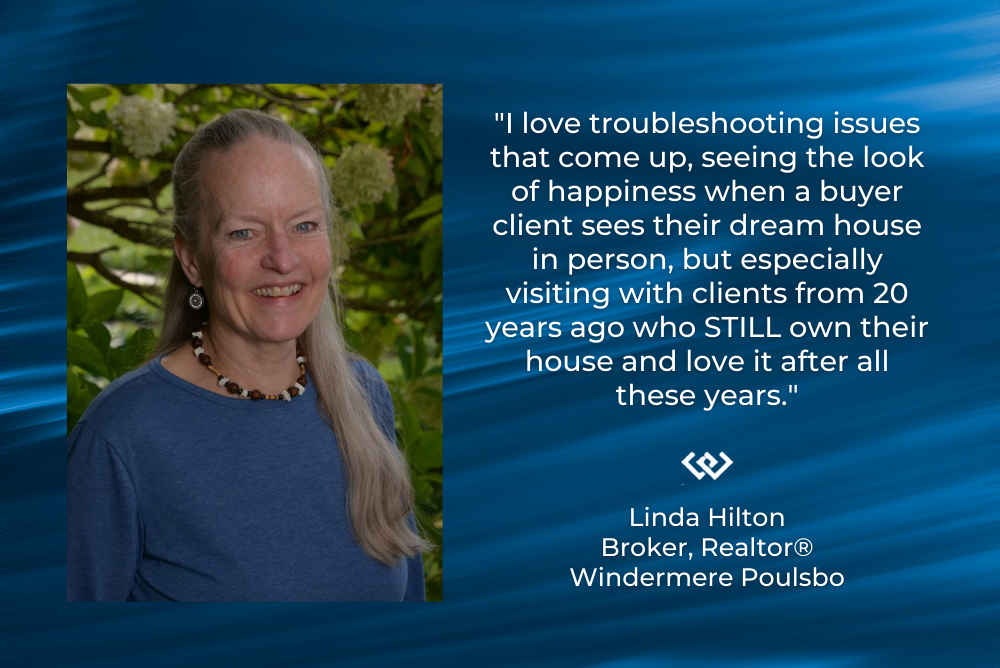Should You Renovate Or Sell Your Home As Is?

You’ve decided to sell your home, so should you renovate or sell your home as is? As with all decisions, there are pros and cons to each choice. If you choose to renovate your home, it will most likely sell for a higher price and faster, but remodeling projects can be costly. And, some don’t have a high return on investment. If you choose to sell your house as is, you save money in the short term but you could miss out on making more money on the sale of your home. It’s important to understand the factors involved and work with your real estate agent.
Home Remodel Cost Analysis
One of the most important factors is the cost of home remodeling projects. First, how much are you willing to spend? Second, can you expect a decent return on investment (ROI) when you sell your home? Thankfully, you don’t have to figure this out on your own. Your local real estate agent is a great resource. Who you choose to work with matters. They should be an expert on your local market. It’s their job to evaluate your home and to know which remodels or home updates are most beneficial in your area.
Doing A Home Remodel
If you decide to move forward with renovations, the next decision to make is whether to undertake DIY projects or hire a contractor. If you are qualified, can you dedicate the time required to finish the project within your home sale timeline? While hiring a contractor costs more, it may be worthwhile. You may want the peace of mind of working with a professional, especially for highly technical projects.
According to the Remodeling 2024 Cost vs. Value Report, on average, homeowners paid approximately $25,000 for a midrange bathroom remodel and it had a 74% ROI. For a minor kitchen remodel nationwide, they paid about $27,500 and it had a 96% ROI. For your home, simpler upgrades that increase your home’s value may be better. Consider painting kitchen cabinets, refinishing hardwood floors, or installing new bathroom tile.
If you’d love to remodel or update your home but the price tag is just too much, check out the Windermere Ready program. This program provides expert guidance from one of our Realtors, and a loan of up to $100,000 to assist with these types of expenses. The loan term is six months and there are no upfront costs. Also, no monthly payments are due during that time. When your home is sold, the loan is paid off in one lump sum.
Selling Your Home As Is
If you decide not to remodel your home, you may ultimately sell your home for less. But you won’t have to deal with the costs and headaches that can come with renovations. Plus, remodeling a home you are about to sell means the buyers get to enjoy the upgraded benefits, not you. Lastly, choosing not to remodel or make any upgrades will speed up your timeline. But it will also impact your home-buying budget. It’s important to remember the costs of buying a new home.
Market Conditions
Local market conditions are another factor to consider when deciding whether to renovate or sell your home as is. If there’s strong demand and limited supply in your area, high competition among buyers will drive up prices. However, you’ll still have to take steps to prepare like making necessary repairs. And, staging your home gives buyers a great first impression and helps them easily imagine themselves in the space. That being said, sometimes certain projects like adding stone veneer to your home’s exterior (153% recouped at resale) or replacing your garage door (194% recouped at resale) can really increase the value of your home.
Currently, we’re seeing a more balanced market here in Kitsap County. More inventory is coming on the market and so buyers have more options and more negotiating power. When weighing different actions you could take, be sure to factor in your timeline and goals. Also, you’ll want to dive into your local real estate market’s current stats. Below is a brief look at our second quarter’s highlights. Talk to your agent to gain valuable insights. Our agents provide clients with a free Comparative Market Analysis (CMA). A CMA enables you to see what your home is currently worth compared to similar homes in your neighborhood.
Regardless of which direction you decide to go in, we hope you have the data you need to decide with confidence.
Important Questions to Ask When Touring a Home

While touring a home can be exciting, it’s best to come prepared with questions. Doing so ensures you’ll stay focused on examining the property vs. solely admiring it. It’s essential to keep your wants and needs at the forefront throughout the home-buying process. Just because a property is gorgeous, in an ideal location, and/or fits your budget, doesn’t mean it’s truly the right fit for you. There’s more to consider.
Questions to ask about the home
Whether you’re going to an open house or you’ve scheduled your own tour, be sure to ask the questions below. Some information may be included in the listing remarks, but you can find out so much more by asking or having your local real estate agent ask for you.
- How long has the property been on the market?
If it has been sitting for a while, is that due to the time of year or the recent shift in the market? Or, is there another reason? Sometimes homes sit on the market because they are unique properties that don’t necessarily meet the needs of many buyers. Other times, the home may not be properly priced. Or, it may need a significant amount of work. - What is included in the sale?
You’ll want to know in advance if the home currently has any custom appliances or fixtures that won’t be included. - Are there any known repairs or issues?
An inspection will detail these issues, but it’s important to ask any clarifying questions you may have. For example, if roof repairs were recently done, was it because of something minor or major? There’s a big difference between replacing some shingles and doing a major repair due to a leak that involved water damage. Sometimes sellers won’t know of an issue and that’s why it’s important to have an inspection done. Additionally, a lender will require an inspection. The lender may also state certain repairs must be done before moving forward. This applies to major defects that could negatively impact a home’s property value. - When was the house last updated or renovated?
Older homes can either be well-cared for or in need of some TLC. Knowing how old key components of the home are will help you better understand what work may need to be done now or down the road. Then, you can factor that into how much you’re willing to spend on the home now and what is in your budget to invest in the property in the near future. For example, how old is the HVAC, the roof, the garage door, and the appliances that come with the home? - Are there any special maintenance requirements to consider?
Will this home need a certain amount of weekly or monthly upkeep? If this home has a large lawn, a big garden, or other specific features like a pond, are you able to do that work or budget for someone else to do it regularly? If it’s a waterfront home, will you need to worry about waterfront structures like retaining walls, boat lifts, and/or a dock? If the home is in a wooded or rural area, are there pest prevention methods to consider or potential costs related to caring for this property? For instance, a home on acreage may require upkeep of barns or stables, an ADU (Accessory Dwelling Unit), or a private driveway or trail. - Is there a Home Owners Association (HOA)?
If the home has an HOA (Home Owners Association), are there specific requirements regarding landscaping and lawn care? Do you have to get HOA approval to make certain changes like painting the exterior a certain color? How much are the HOA dues and fees and what do they cover? - When is the offer review date?
If you love the home and want to make an offer on it, it’s important to understand the seller’s timeline for reviewing and accepting offers.
Questions to ask about the neighborhood
-
- What does it feel like to walk or drive around the neighborhood?
When seriously looking at homes for sale in a certain area, it’s helpful to walk or drive in that neighborhood. By doing so, you may realize how much you want to live in a quiet community surrounded by nature. Or, you may prefer a bustling suburban or more urban area. Even if it’s in the type of environment you desire, this beautiful home might be very close to a long term construction project or adjacent to an area you’d like to avoid. Walking around a neighborhood can really give you more of an idea of what it would be like to live there, how safe it feels, who your neighbors would be, and if the house and the community fit your lifestyle. - What amenities does the neighborhood or surrounding area offer?
If the home you’d like to buy has a nearby fitness center, clubhouse, park, beach, or trail, check all of that out after touring the property. It’s also important to think about your commute time and businesses you frequently visit. On a map, certain amenities may seem really close. But when you’re actually there, you may realize what seemed walkable or a short drive away may not be. This could be due to traffic at certain times of the day, a lack of sidewalks, or other accessibility issues. Your local buyer’s agent can provide insights. They should be able to give you information about local schools, community features, pros, and cons. - What transportation options are available?
Here on the Kitsap Peninsula, many people commute using the WA State Ferries or the Kitsap Fast Ferry. Kitsap Transit also has routed buses, and there are on-demand services. It’s important to think about what your daily life would look like if you purchase this particular home for sale. How would its location impact you positively or negatively? For instance, if you’re retiring, you may not need to worry about commuting by ferry, but you may want to be able to live in a walkable area. Or, perhaps you want to easily take a bus or ferry to a museum or sports event.
- What does it feel like to walk or drive around the neighborhood?
Questions to ask when touring a home virtually
Touring a home virtually isn’t ideal, but if you’re an out-of-state buyer unable to see the home in person, it’s the next best option. Hopefully you have a trusted friend, family member, or a great local real estate agent who can lead the way. Here are some additional questions to ask them while they are walking through it with you on screen.
- Is there a floor plan I can reference during the tour?
Having a floor plan to refer to while someone is walking you through the home online can be very helpful. It gives you a better sense of where things are and how everything is situated within the home. This can also give you a clearer sense of the size of different rooms. Many properties today are well staged and are advertised with top-notch photos. This can mean some rooms seem bigger than they actually are. - Can you give me the measurements?
While a video chat is more raw than a professional 3D tour, it can’t replace the in-person experience. So, if you can’t be there, get them to dig into the details for you. Ask about the square footage of specific rooms and/or measurements of particular areas within a room. You may assume a window or counter is about a certain height or length, but you won’t know until you ask them to measure it for you. This is particularly important if you’re assuming certain items in your current home will fit in this new home. You may have a piano or dining room set you don’t want to part with, but will it work in this home? That may not be a deal breaker for you, but it’s helpful to factor this information into your decision making process. - Are there any sights, smells, or sounds that give you pause?
The person walking through the home for you must be your eyes, nose, and ears. If they notice any concerning sights when looking around the home or through the home’s windows, they should say so. Is there a glaring eye sore across the street? Does anything in the home look very worn or damaged? Are there any areas that look different from the photos? Also, it’s important that they describe problematic details like mold, large cracks, or dents. Similarly, you need to know about any weird smells in the home. Ask them to describe what they smell in the entryway, kitchen, basement, bathrooms, etc. To focus on the sounds in and near the home, ask them to open the windows. Have them turn on the faucets, fans, and the garbage disposal. Walking around the exterior of the home, in the yard, and in the neighborhood will also be beneficial.
Home Buying FAQs: Investment Properties, Co-Buying & More

There are different ways to go about buying a home. As a homebuyer, your situation, goals, and expectations about the process can vary widely. To demystify the home-buying process, we’ve compiled a list of some of the most common questions with useful information to help you get started.
How can I start the home-buying process?
It’s important to start the home-buying process by answering some key questions.
- Where do you want to live and why?
- What amenities, aspects of the neighborhood, and the community are you looking for?
- When it comes to the type of home you want to buy, what are your needs versus your wish-list items?
- Are there life situations to consider when factoring in the type of home that will suit you/your family best? (For example, needing a single-level home, a fenced backyard, a home office, or proximity to the ferries for your commute.)
- What is your budget?
A highly rated local real estate agent will help walk you through the home-buying journey. So finding a great agent and then discussing your answers to the questions above will help you create a path forward.
Another excellent resource is Windermere’s Guide to Buying a Home. It offers a comprehensive overview of the home-buying process, including pre-approval and other steps involved. Additionally, it explains purchase and sales agreements and inspection reports. You’ll also find helpful moving tips in that guide.
What should I look for in an investment property?
There are two types of residential real estate. One may be used for you to own as your primary residence. The other may be used as an investment opportunity. In this case, you, as the owner, do not occupy the home but purchase it for financial gain. If you are in the market for an investment property, there are different factors to consider. Just as you would consider when purchasing your primary residence, consider the area the investment property is in, local amenities, and future development of that area. Additionally, consider current rental listings and vacancies, major employers in the area, and average rents. Once you purchase an investment property, follow all laws to ensure it is properly maintained and gets rented quickly for the highest price. If you don’t want the stress that can come with being a landlord, Windermere Property Management is a wonderful local option here in Kitsap County.
What are the ownership options when I buy a home?
If you are looking to purchase a home, you may decide to do so independently. In this case, you will be the sole owner of the home. Another option is to co-buy a property. In this case, ownership of the property is split between two or more people. Be sure to consult with a real estate attorney to iron out details of the agreement, such as down payment, home repair, and mortgage payment responsibilities between the parties.
There are pros and cons to co-buying a property. On one hand, it can be a good way to enter real estate if you don’t currently have enough funds alone. On the other hand, there is the risk the co-buyer will be unable to uphold their end of the deal should their financial situation change. Carefully consider your situation and possible outcomes when deciding how to purchase a property.
What types of home loans are there?
There are many different home loans, and a mortgage consultant is going to be your best resource to ensure you find the right one. Loan terms can range anywhere from 10 years to 30 years. Fixed-rate mortgages have one interest rate for the entire length of the loan, whereas a variable-rate loan may change over time.
Conventional loans typically require 20% down, but other loan programs can assist individuals such as first-time homebuyers. An FHA (Federal Housing Administration) loan only requires 3.5% of the purchase price down, while a VA loan offers zero down as long as the sales price isn’t higher than the home’s appraised value. Check out this Q&A with Mortgage Consultant Cherie Kesti for an in-depth look at mortgage options.
How can I reduce my monthly payment?
With today’s interest rates, many buyers are looking for ways to decrease their monthly mortgage payments. First and foremost, you should be in a strong financial position to take out a home loan. Have as much cash on hand as you can for the down payment. You want your credit score to be as high as possible and to reduce or eliminate your debt.
Another strategy to consider is to buy mortgage points. You can purchase discount mortgage points upfront to buy down the interest rate. (And thus, lower your monthly payment). Check out this buy points mortgage calculator to see if it’s worth it for your personal situation.
Home buying is complex. Whether it’s your first time buying a home or you are a seasoned investor, building a team of local experts to help you achieve your real estate goals will make way for a much smoother, more enjoyable process.
New Agent Spotlight: Linda Hilton

With decades of experience serving homebuyers and sellers, Linda Hilton possesses a wealth of knowledge. We’re so glad she returned to our Windermere team. Linda has fascinating stories about everything from real estate transactions to her experiences abroad. Learn more about her in our Q&A below.
What drew you to real estate?
Originally, it was the flexibility of the hours; I had a small child and wanted to be there for him. Before real estate, I was in the restaurant business. Now I love troubleshooting issues that come up, seeing the look of happiness when a buyer client sees their dream house in person, but especially visiting with clients from 20 years ago who STILL own their house and love it after all these years.
What unique skills do you possess that enhance your abilities as a realtor?
I’m well-traveled, and I’ve lived in many different environments. I understand different cultures, ideas, and ways of communicating.
What personality traits do you think are important in this profession?
Listening, patience, and a sense of humor.
Which areas do you serve?
Kitsap and Jefferson Counties, what’s not to love?! I love the water, the mountains, and the trees.
How long have you lived here, and what brought you here?
I’m on my 12th year. We moved from Alaska to be closer to family.
What made you decide to work with Windermere?
I like Windermere’s philosophy. People and clients come first.
Is there anything else you’d like to share with us?
Honestly, I just love real estate. Putting deals together, helping people achieve their goals. I retired 3.5 years ago, and I found myself talking to everyone about real estate, so I’m back!
Thank you, Linda! If you want to learn more about Linda Hilton, visit her website or check out her Facebook page.
Want to Sell Your Home? Avoid These Mistakes

If you want to sell your home, it’s important to prepare in every way – and that includes avoiding pricey missteps. Selling a home involves various fees and costs. However, it also involves opportunities to maximize your profit. In order to have the best home-selling experience, avoid these costly and timely mistakes.
Not considering home-selling costs
There are many costs associated with selling a home. Prior to listing, remember to take into account the price of a pre-sale inspection and the listing agent’s fees. In addition, getting your home ready for sale may require repairs and/or staging.
After selling the home, there will be the remainder of the mortgage to pay, escrow fees, and property taxes. Additional taxes may apply to your unique situation, such as the capital gains tax. Finally, factor into your budget the cost of moving. You may need to hire movers, rent a moving truck, or find a storage unit during the interim period.
Not preparing your house for sale
While there will be fees and costs associated with moving, there are ways to guarantee your home is sold for its highest possible price. First and foremost: prepare your home for the market. Ordering a pre-listing inspection and discussing it with your real estate agent can help you decide what repairs will have the highest return on investment. As a result, the pre-listing inspection and repairs will often lead to a much smoother transaction.
Also, staging a home often results in the home being on the market for a shorter period of time. An expertly staged home instantly entices buyers, shows off the property’s best features, and helps them easily see themselves living there. Additionally, staging often leads to a home selling at a higher price point. The investment in repairs and staging can make a significant impact. A turnkey or move-in ready home drives sales. Sure, preparing to sell your home is an investment of time and resources, but it is a powerful revenue-generating task.
Not using a local real estate agent
A knowledgeable, local real estate agent can have a profoundly positive affect on the home-selling process. According to the National Association of Realtors, a good local Realtor will understand the specifics of the market you are selling in, have access to greater search power and offer objective opinions to maximize your home’s value. While some may try the “for sale by owner” approach, working with a local real estate agent offers many benefits. Utilize their expertise to maximize your efforts. A trusted advocate will have your back when it comes to negotiations, they’ll project manage for you, and you’ll have access to their network of excellent local vendors to get the job done right.
Not getting a CMA
One value a real estate agent can provide is a free CMA. A CMA is a Comparative Market Analysis. It is a comprehensive report that compares your property to others in the area. After walking through the home to get a general idea of its condition, the real estate agent will look at similar homes that have sold in your area. The agent will also consider local market trends and seasonal factors, as well as the location of the home.
The value of the report lies in its ability to ensure a home is priced to sell. In addition, the report can give insight into what upgrades and repairs are the most cost-effective to maximize a home sale.
Not taking advantage of home-selling programs
A distinct advantage of working with Windermere is its amazing program for home sellers. The Windermere Ready program is designed to help sellers make an excellent first impression with potential buyers. It provides the home seller with a personalized assessment and consultation with a Realtor to identify custom priorities for updating and repairing the home.
This personalized assessment takes the guesswork out of selling a home and allows the owner to maximize their profits with strategic updates and planning. Many Windermere agents and their clients have found great success with this program, as demonstrated in the video below.
Not waiting to sell
Generally speaking, it is better to hold onto a home for as long as you can. However, unexpected moves, family priorities, and job opportunities are some of the many common reasons a homeowner may decide to sell. Many may wonder: is two years enough time to wait before selling a home?
This is when it is important to consider the selling fees mentioned above. Closing costs, agent commissions, and taxes may not make selling the home a profitable financial decision. It’s also important to keep in mind that a home sold before two years have passed is subject to capital gains tax. Ensure you look at all the numbers before selling your home to ensure it has appreciated enough to cover closing costs.
The general rule of thumb is that it typically takes five years for it to make financial sense to sell a home.
Not accepting the best offer
Sometimes the best offer does not come from the highest bid. It’s important to discuss all the terms of the offer with your real estate agent. Cash offers or buyers who are pre-approved by a lender may be likely to close the deal on time.
In addition, go over all the contingencies laid out in the offer. Take into consideration the offer’s proposed deadlines and timelines. Look at all components of the offer to ensure it best meets your home-selling needs.
Selling a home can be a worthwhile endeavor financially. By avoiding these costly mistakes, you will be on the right track toward maximizing your home sale profitability.
New Agent Spotlight: Marisa Robba

A sincere advocate with a wealth of knowledge, Managing Broker/Realtor Marisa Robba is a wonderful recent addition to our Windermere Poulsbo office. She’s been helping buyers and sellers achieve their real estate goals for seven years and possesses a unique skill set and a sincere love for Kitsap County. Read our Q&A to learn more.
What drew you to real estate?
I have been involved in real estate since my early twenties, from purchasing my first condo to investing in rental properties. I am genuinely curious about the future of land and resources and the aesthetics of various properties and structures.
I have found that switching careers from teaching middle school to being a real estate agent has a lot of cross-over.
My natural tendency is to notice and convey details, set expectations, and build relationships. I listen and work hard to understand people and what they value. I have a long history of advocating for people’s best interests – children, parents, staff, and now, for the past 7 years, my clients!
What unique skills do you possess that enhance your abilities as a realtor?
Anticipating clients’ needs and trouble-shooting obstacles before they become problems are strengths of mine.
What personality traits do you think are important in this profession?
A calm, communicative demeanor with a whole heck of a lot of integrity can get you far in this business. Sprinkle a little grit in there too!
Which areas do you serve?
I live in Poulsbo now, after 13 years on Bainbridge Island. I will travel just about anywhere in the state if I feel I can benefit my clients. But generally, I work in Kitsap County.
How long have you lived here and what brought you here?
I’ve been up here for 15 years now. I came here for the Olympic Mountains, the waterways, the proximity to my folks, and the slower pace of life, and I have never looked back.

How are you involved in the community?
I am a strong believer in giving back to the community – whether through food bank donations, One Call For All gives, trail-building in many of our county parks, or through PTSA and school-related volunteering.
What made you decide to work with Windermere?
Over the past 7 years in real estate, I have had the best interactions with other Windermere agents! Their level of professionalism and dedication to their clients is second to none. Once I talked to the Designated Broker, I was 100% in.
Is there anything else you’d like to share with us?
There is a real estate agent out there for everyone. Nothing in this business is cookie-cutter. As home transactions are some of the biggest decisions one can make, be sure you have someone on your side that you are comfortable with and who will go to bat for you.
 Facebook
Facebook
 X
X
 Pinterest
Pinterest
 Copy Link
Copy Link






